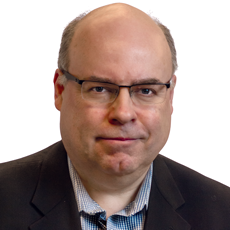
One of the big questions amidst the horribleness of this pandemic is how we’ll respond to what it has revealed about us as individuals, entities and a society.
In the long-term care profession, our organizations have the opportunity to become more resilient. Leadership skills can be sharpened in this fire. Stronger and more redundant systems could emerge.
And maybe we’ll even stop shaking hands.
Up until the year 2020 B.C. (Before COVID-19), virtually every facility tour, job interview and business agreement included one or many of these tactile encounters. Networking events were an orgy of finger mingling. Did survey visits end with handshakes? I assume so, though I have never been present to observe.
Think with me for a moment about how dumb this handshaking ritual is, and how insane that it’s been going on for centuries. At this point in the history of science on planet Earth, we know our hands are a gateway and form of conveyance for all manner of grime and disease. They’re one of the biggest weaknesses in our human armor, like the unprotected abdomen of a dragon.
But what have we done with that information? We’ve established a global societal ritual of grabbing and squeezing the filthy hands of strangers and expecting them to return the favor. We dock like two iPhones together, instantly transferring everything unknown about them to us, every contact they’ve made, everything they’ve touched. We’re literally putting their life in our hands.
I’m not an epidemiologist or hand sanitation expert, so I don’t know exactly what happens at a cellular level when I place my right hand into the hand of another. But I imagine it’s not unlike rabid rats jumping from a burning ship or an army of evil Orcs coming over the city walls. I see little bacterial devils or viral demons leaping everywhere, from your fingers to mine or mine to yours, each acquired through germ-accruing activities of daily living.
Except for those of us who lick railings and door handles, no other bodily appendage makes contact with as many contaminated surfaces as do our hands. When early civilizations first established the vile handshaking ritual, they should have considered safer greeting practices like pressing ears together, rubbing noses or bumping hips. Maybe even kissing would have been safer. (As you consider that last conjecture, keep in mind that this is only one of the Things I Think, unsubstantiated by actual knowledge or fact.)
So armed with this knowledge, and now sensitized to it, what can and should we do? We should still wash our hands, of course, dozens of times a day, scrubbing until it’s soap on bone. We should stop touching our faces. But that’s still no foolproof protection against what somebody else chooses not to do or care about. To shake someone’s hand is to say, “I don’t know much about you, but I choose to embrace every bad hygienic choice you’ve made today.”
So the better option is to exorcise this custom entirely.
The desire to cling to practices that were never smart and safe to begin with is a symptom of our current deep longing to “get back to normal” as soon as possible. But what does normal really mean? In a recent article in the Atlantic, author Charles Yu makes the case that it’s the world we’re living in now that’s reality, and our former lives and habits that were the fiction.
“What the current crisis and our responses to it, both individual and institutional, have reminded us of is not the unreality of the pandemic, but the illusions shattered by it,” he says
So right now, with every head bowed and every eye closed, let’s make a societal pledge to accept this shattered illusion and never reintroduce the insanity of handshaking — and to celebrate that decision with a passionate elbow bump.
Things I Think is written by Gary Tetz, a national Silver Medalist and regional Gold and Silver Medal winner in the Association of Business Press Editors (ASBPE) awards program. He’s been amusing, inspiring, informing and sometimes befuddling long-term care readers worldwide since the end of a previous century. He is a multimedia consultant for Consonus Healthcare Services in Portland, OR.




